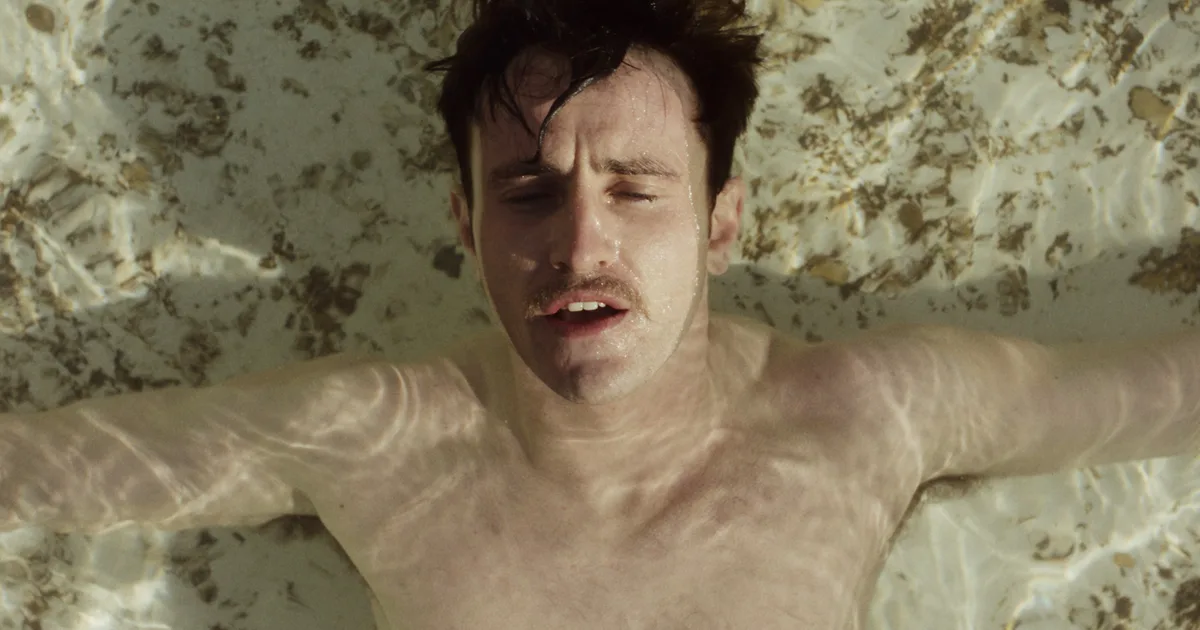
White Men Can’t Jump is about as graceful as pop filmmaking can be. On the surface it’s a touch formulaic – the basketball movie as buddy comedy, with Woody Harrelson and Wesley Snipes bickering in pursuit of streetball greatness. But there’s a unique grace to the game’s form that makes it perfect when transplanted to the cinema, and despite its intended standing as comedy box office fare, the film is the purest distillation of the fluid beauty of basketball’s movement that I can name. The configuration of a classic jumpshot; pirouetting circus passes; lay-ups that kiss the backboard and fall through the net, barely bothering it: basketball just looks right when it’s projected big in a way that other sports don’t. You only need to look at any instance of football on screen to understand that simply replicating the action in film form won’t cut it; there is yet to be an accurate depiction of the game in over a century of cinema. But basketball’s action can be isolated, as in White Men Can’t Jump, where Snipes and Harrelson trade simple, perfect-form jumpers for five minutes, the camera God’s‑eye as it watches the ball arc through empty air and into the clanking metal of a chainmail net.
Elsewhere, you only need to read the title to understand that White Men Can’t Jump is a provocation acting as a joke, and while the film does climax with Harrelson eventually dunking the ball to win the game, it remains that woven within the cliched architecture of the film is a loaded back-and-forth – deployed as rapid repartee between the leads – about the race relations that dominate any serious off-court discussion about basketball. The remake is of course risible.
Not all of the 90s output was as vital and savage, however; if it seemed harmless at the time – and was a child’s gateway to the game in the manner of Air Bud and Like Mike after it – Space Jam presaged so much about where both basketball and cinema were going, a puerile endeavour more concerned with money and merch, that eventually reached its nadir with Air, which knows how contemptible its fawning over naked avarice is because it feels the need to add a note at the end stating that Phil Knight has donated $2 billion of his sneaker money to charity. (What it leaves out is that this is mostly to his own charitable foundations and that it comes in the form of appreciated Nike stock.)
If this trainer-talk seems beside the point, then know that the modern game is reliant on its apparel endorsements, and that wrong decisions of this sort can be bad for your career, as shown in Lenny Cooke – the basketball film the Safdie brothers made before Uncut Gems – where we see Lenny show up at an Adidas training camp in a pair of Jordans. This is one of a number of negligent moves on Lenny and his money-hungry entourage of wish-promising agents’ part, and the player (who was rated the best young star in the country) ends the film a decade later watching his rival LeBron James on TV. Lebron – the star of Space Jam 2 in the way Jordan was for the original – is still playing today, undoubtedly one of the greatest players of all time. But Lenny Cooke was said to be as good as him, perhaps even better. The tapes of a young Lenny which make up the first half of the film were shot in 2001 by Adam Shopkorn, designed to be a text on the ascension of a great young talent. Instead, the Safdies picked up the footage a decade later, and completed the filming of a very different documentary. As critic John Semley writes: “Hoop Dreams was meant to be a warning against all of this: the exploitation of young black athletes, the false promises of bootstrapping upward mobility through sports, the lies that dangle on the stick of American nationhood.”
No discussion about the cinema of basketball would be complete without something on Spike Lee, the sport’s most ardent film-world fan since Jack Nicholson stopped being seen courtside at every Lakers home game (Nicholson made his own basketball film in 1970, his raucous directorial debut Drive, He Said).
The recent NBA playoffs again saw Spike cheering on his beloved Knicks at Madison Square Garden, still alternately raging and rejoicing like he was seen doing in Reggie Miller vs The New York Knicks, a 30-for-30 documentary depicting the Knicks/Indiana Pacers rivalry that has at times seen Lee cast in a more prominent role than some of the players. His is a true devotion, though, melding sport and art at multiple times throughout his career, including directing the commercials for those first Nike-backed Jordan sneakers and a vital documentary for ESPN called Kobe Doin’ Work, a day-in-the-life type thing that has become especially poignant in the years since Kobe Bryant’s death in 2020.
Most importantly, Lee directed He Got Game, in which he cast NBA player Ray Allen in the lead role opposite Denzel Washington. Real life players had often shown-up in basketball movies – Blue Chips had Shaquille O’Neal’s name on the poster the same size as Nick Nolte’s – but in truth these were as supporting roles in smaller films, or stunts. If He Got Game did have a precedent, it was in Cornbread, Earl and Me, an underseen but influential film that starred NBA rookie-of-the-year Jamaal Wilkes as the titular Cornbread, gunned down by white policeman in a case of mistaken identity. But Lee’s film puts an amateur on screen for about as much time as its star, and much of it hinges on Allen’s ability to go one-on-one with Washington, the estranged father of a family freighted with the tragedy that landed him in prison.

